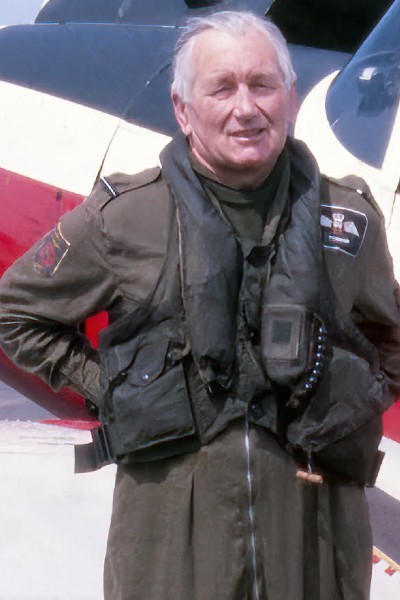Penman, David Jackson
- Date of birth:
- October 14th, 1919 (Edinburgh, Great Britain)
- Date of death:
- November 27th, 2004
- Nationality:
- British
Biography
Service number 40343.
On leaving school in 1937, David Penman was granted a short service commission in the RAF to train as a pilot. He joined No. 44 Squadron in October 1938. On outbreak of the war he flew Hampdens.
After reposting to No. 97 Squadron, with wich he flew a full tour, he left in 1944 for Burma, where he flew Dakota transport aircraft dropping supplies for the advancing allied armies towards Rangoon.
Penman remained in India at the end of the war and took command of No 31 Squadron. In January 1948 he brought the last Dakota out of India back to the United Kingdom.
He was restationed to Germany where he co-ordinated the RAF's air transport operations flown from Luneburg during the Berlin Air Lift. For commanding RAF Leeming he was apponted OBE in 1972.
Penman retired from the RAF in 1974.
The next 10 years he was attached to the Air Training Corps.
Promotions:
November 30th, 1937: Acting pilot Officer (probation)
September 27th, 1938: Pilot Officer
June 27th, 1940: Flying Officer
June 27th, 1941: Flight Lieutenant (war sub)
July 1st, 1943: Temporary Squadron Leader
January 28th, 1946: Squadron Leader (war sub)
September 7th,1948: Wing Commander (appointment to commission)
October 14th, 1974: retirement
Do you have more information about this person? Inform us!
- Period:
- Second World War (1939-1945)
- Rank:
- Flying Officer
- Unit:
- No. 44 (Rhodesia) Squadron, Royal Air Force
- Awarded on:
- April 18th, 1941
- Period:
- Second World War (1939-1945)
- Rank:
- Flight Lieutenant
- Unit:
- No. 97 (Straits Settlements) Squadron, Royal Air Force
- Awarded on:
- April 28th, 1942
"On 17th April 1942 a force of twelve Lancaster heavy bombers was detailed to deliver an attack in daylight on the diesel engine factory at Augsburg in Southern Germany. To reach this highly important military target and return, a most daring flight of some 1000 miles over hostile country was necessary. Soon after entering enemy territory and whilst flying at very low level the force was engaged by 25 to 30 enemy fighters. Later, the most intense and accurate anti-aircraft fire was encountered. Despite this formidable opposition eight of the bombers succeeded in reaching the target and in delivering a successful attack on the factory. The following officers and airmen who participated, in various capacities, as members of the aircraft crews, displayed courage, fortitude and skill of the highest order."
- Period:
- Second World War (1939-1945)
- Rank:
- Squadron Leader
- Unit:
- Reserve of Air Force Officers
- Awarded on:
- January 14th, 1944
Sources
- Photo 1: Davie Roberts
- - The London Gazette Issue 35139 published on the 18 April 1941
- Third Supplement to The London Gazette Issue 35539 published on the 24 April 1942
- Third Supplement to The London Gazette Issue 36329 published on the 11 January 1944
- 97 Squadron Association
- The Telegraph - Obituaries





